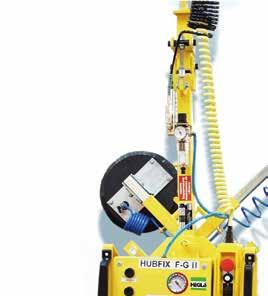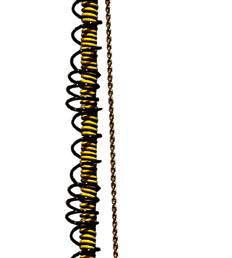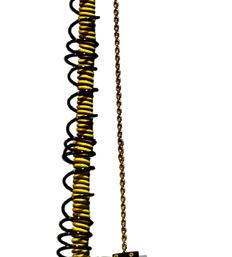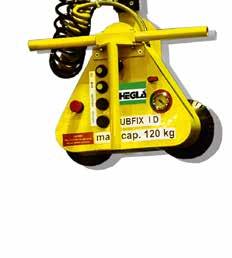
3 minute read
INSTALLERS NEED TO BE VERY CAREFUL WHEN IT COMES TO CASH FLOW
Cash is king, so they say. Cash flow is just as important too. So as we continue into a new year that feels like there may be a material drop in business activity, installation companies in the fenestration sector are going to need to be very aware of how to manage cash flow and their order books to make sure they don’t find themselves in a tight spot.
Cash flow challenges
Advertisement
The last 18 months have been one hell of a bounceback for our entire sector. Never have we witnessed such a long and sustained period of high demand from the general public. For most of 2021 it almost felt as though we didn’t need to try when it came to winning orders. I know that at times it felt like that for me at our family business.
With high demand came very extended lead times. The manufacturing part of our supply chain became crippled under a number of different problems all at the same time and lead times both for fitting and fabrication went from weeks to months.
So with full order books bigger than ever before, but waiting times on delivery of products also longer than ever before, installers had a variety of pressures to handle. Suddenly, running a business became harder than ever, which was clearly not the desired symptom of all that extra business.
Managing cash flow became, and very much still is, an absolute necessity. I witnessed installers increasing the amount they would take in a deposit, perhaps up to 50%. Over the last few years, there have been ongoing discussions about raising the % of deposits taken in an attempt to protect a business from rogue clients. That is very much a valid concern. But due to the unique position we have found ourselves in, it was to also cover costs.
For example, an installer winning a £10,000 contract might take half upfront. They may not install that job for another four months. But in the meantime, they have staff to pay for, suppliers, VAT, NI and other overheads. That £5000 upfront is a useful amount of money. Especially if they have a supplier that asks for a certain amount of money to be paid upon placing an order.
If installers are using deposit money like this, then what happens if there is a delay in the delivery of products? Cash flow works well when fitting schedules are not disrupted. But as we all know, last year was far from smooth, and there were a number of well-publicised delays on deliveries and production. Any delays which result in an installer being unable to fit that week’s planned work can wreak havoc on a bank balance. Any good installer knows what is coming in that week and month, and will plan accordingly when it comes to paying staff and bills. The problem is if they have used most of that 50% deposit from a contract to pay for things, a 50% balance at the end of a completed job isn’t all that huge.
It only takes a couple of large installations to be postponed for a few weeks and suddenly the cash flow for an installer could look pretty precarious very quickly. This is the issue with lead times being as long as they are. It leaves little room for rescheduling and the temptation to take larger deposits and leave smaller balances can sometimes work against you.
Smaller but more regular
If things start to become a bit choppy and business isn’t as brisk in the coming weeks and months, then managing those bills and cash flow for installers is going to become a top priority. It will also mean it is time to rethink how you take payments from clients. This is what we do at our place when it comes to the medium and larger contract values. We take a 2025% deposit when the client signs up with us.
Grafton-Holt
We then work out stage payments. We limit it to one if it’s a medium-sized contract, or for larger ones we work in two-stage payments. Because we have a number of suppliers that ask for at least some of their money upfront when we order, we make sure that the deposit amount we take covers that. The stage payments are then worked out to cover the rest of the material costs. That means we have paid most of our major bills on that contract already, with some more money to come in when the job is complete. It is a smaller balance to be paid once the installation is complete, but all major bills associated with that contract are already paid which leaves little risk to us and we can manage our cash flow a lot better as we have smaller but more regular amounts coming in.
Given the very fluid nature of raw material costs, ongoing COVID disruption and supply chains that are still sorting themselves out, installers really do need to be protecting themselves and creating a more sustained and reliable cash flow system to support their business. Don’t leave anything to chance, cover your bills quickly and don’t leave vast balances at the end which could work against you if there are problems to solve. And if you’re one of the few companies left that don’t take a deposit from a client, really think hard about that. The nature of the business has changed. Can you really afford to run that risky practice now? It might sound like a good sales USP, but it leaves the door wide open to abuse from rogue clients.
















